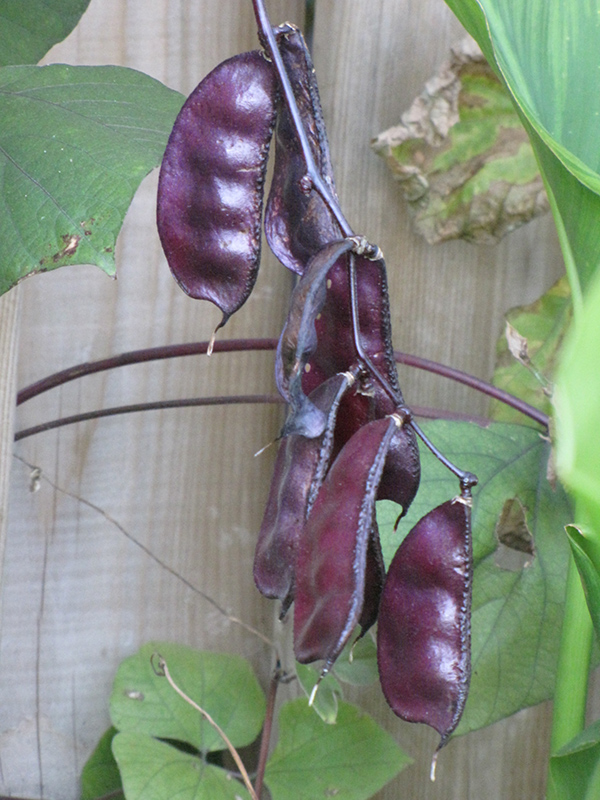Plant Library
Height: 9 feet
Spacing: 12 inches
Sunlight:
![]()
Hardiness Zone: (annual)
Description:
A beautiful vining edible ornamental; vines reaching upwards of 10ft, this selection produces knife shaped pods, usually green but sometimes purple; pods harvested young can be eaten whole, otherwise beans can be eaten fresh or dried
Edible Qualities
Runner Bean is an annual vegetable plant that is commonly grown for its edible qualities. The entire above-ground parts of the plant are edible, and are usually harvested from mid summer to early fall. The edible parts have a delicious taste.
The plant is most often used in the following ways:
- Fresh Eating
- Eating When Cooked/Prepared
- Cooking
- Drying
Planting & Growing
Runner Bean will grow to be about 9 feet tall at maturity, with a spread of 12 inches. When planted in rows, individual plants should be spaced approximately 12 inches apart. Because of its vigorous growth habit, it may require staking or supplemental support. This fast-growing vegetable plant is an annual, which means that it will grow for one season in your garden and then die after producing a crop.
This plant is typically grown in a designated vegetable garden. It should only be grown in full sunlight. It does best in average conditions that are neither too wet nor too dry, and is very intolerant of standing water. It is not particular as to soil pH, but grows best in rich soils. It is quite intolerant of urban pollution, therefore inner city or urban streetside plantings are best avoided. Consider applying a thick mulch around the root zone over the growing season to conserve soil moisture. This species is not originally from North America, and it is considered by many to be an heirloom plant.
Runner Bean is a good choice for the vegetable garden, but it is also well-suited for use in outdoor pots and containers. Its large size and upright habit of growth lend it for use as a solitary accent, or in a composition surrounded by smaller plants around the base and those that spill over the edges. Note that when growing plants in outdoor containers and baskets, they may require more frequent waterings than they would in the yard or garden.





